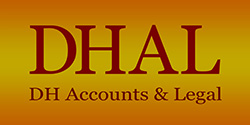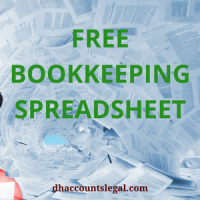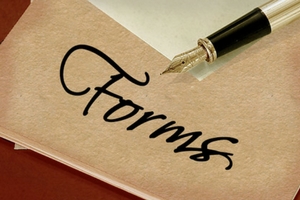The relationship between business owner and accountant is core to the success and profitability of your business. Ask yourself if your accountant: 1. Has relevant qualification and is up to date 2. Has work experience in UK professional firms 3. Is register under Money Laundering Regulation (MLR) and holds certificate from HMRC 4. Is covered by Professional Indemnity Insurance 5. Truly understands a business and provides the support 6. Works with you to grow your business for the future 7. Helps you to save tax 8. Is approachable, friendly and provides jargon free advice 9. Does not miss HMRC or Companies House deadlines 10. Is really trustworthy If […]
Working Tax Credit (WTC) is a state benefit in the United Kingdom paid by HMRC to support people who are working and on a low income. It does not matter whether you are an employee or self-employed. In addition, people may also be entitled to Child Tax Credit (CTC) if they are responsible for any children. The basic amount of WTC is up to £1,960 a year - could get more (or less) depending on circumstances and income. Do not miss opportunity to top up your income. Who can get You can get WTC if you or your partner are working enough hours a week and your income is low […]
Tax scam In this time of the year thousands of taxpayers have been targeted by fraudsters trying to use fake emails or text messages, that they look like come from HMRC, to access people’s online tax records. People receiving emails or text messages are told that they are due a tax refund / rebate but direct them to a fake website that ask to enter login details, bank details, reply to text messages, download attachments. It can be difficult to tell the difference between a genuine offer and a tax refund scam email or text message, so here are some tips to help you. How you […]
If you are an employee in the UK you may be eligible to get a tax refund for example if: you didn’t work a full tax year you were made redundant your tax code was wrong You may be able to claim tax relief if you had to use your own money for travel or things that you must buy for your job and employer hasn’t reimbursed all your expenses for example: uniforms, work clothing and tools business mileage and fuel costs travel and overnight expenses working at home buying equipments You can find more information about expenses for employees on the GOV.UK Fill out […]
If you’re self-employed, your business will have various running costs and expenses. You can take these costs away from your business income to work out the taxable profit. Claim all business expenses and capital allowances and you can reduce your taxable profit. Self-employed: Allowable expenses Office costs: stationery and postage; phone, mobile, internet, email and fax bills; printing, printer ink, cartridges and other small office equipment costs; computer software; rent, business and waters rates, utility bills and insurance costs. Travel costs: vehicle insurance, repairs and servicing, fuel, parking, hire charges, vehicle licence fees, membership, breakdown cover; train, bus, air and taxi fares; hotel room costs and meals on overnight […]
Self Assessment Tax Return The tax year in UK is from 6 April to 5 April the following year. Self Assessment is a system HM Revenue and Customs (HMRC) uses to collect Income Tax. Tax is usually deducted automatically from wages, pensions and savings. People and businesses with other income must report it in a tax return. Who must send a tax return You’ll need to send a tax return if, in the last tax year: you were self-employed even though the tax due may in fact be ‘nil’ you were a company director you got dividends from shares you had income from abroad that you needed to pay […]
1. The National Minimum Wage will be increased to £7.20 per hour for those 25 or over. 2. The Personal Tax Allowance, the amount you can earn before paying income tax, will be increased from £10,600 to £11,000. 3. The Higher Rate Threshold will increase from £42,385 to £43,000. 4. The Employment Allowance will increase from £2,000 to £3,000. 5. To make it cheaper to employ young people, from April 2016 employers will not have to pay National Insurance contributions (NICs) for all but the highest earning apprentices aged under 25. 6. The new State Pension will be increased £119.30 from to £155.65 per week. 7. The income rise disregard […]









